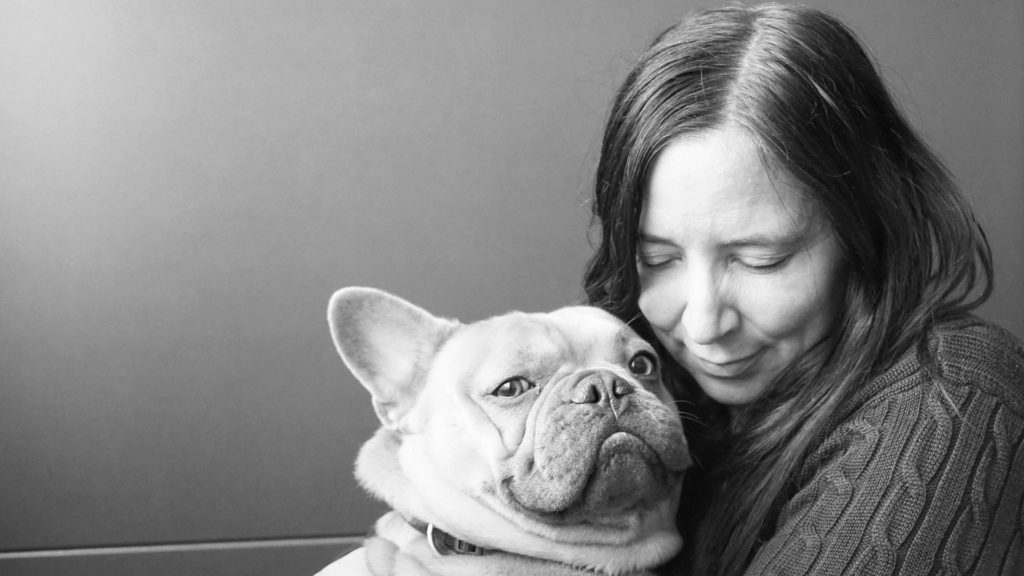
Liz Mahony is an experienced Dog Trainer and Holistic Therapist for all animals. In her monthly column, Liz aims to promote mutual respect between carer and dog. Contact Liz at
corkdogtrainingclasses.com
Many years ago I chatted to a lady who told me that at one dreadful time in her life she had been so stressed that it interfered with her ability to function physically. At one point she couldn’t lift her arms above her shoulders. That conversation came back to haunt me recently when I, too, was under some pressure and felt the results physically, mentally and emotionally. It’s not a pleasant experience. A small amount of stress is good for us. We learn to react to a dangerous or threatening situation and then we relax after the situation has gone away or died down. Our heart rate returns to normal and we can focus again. However, chronic stress interferes with our immune system, makes us tetchy, reactive, interferes with our normal mental processes and generally makes life extremely difficult. It also makes it more difficult to deal with normal life when that stress becomes habitual. If that is how it affects us, what about the effect it has on our pets?
They do say that living alongside humans is the most stressful situation for dogs. As our pets are very sensitive to our environment, lifestyles, moods, and so on, it’s no wonder that they literally ‘feel our pain’, take it on, and become stressed.
Ongoing stress activates adrenaline and causes the ‘flight or fight mode’ in both humans and dogs. Once activated and maintained it’s difficult to get rid of it.
Signs of stress in our dogs include:
• Pacing or shaking
• Yawning, drooling, licking
• Panting
• Refusing food
• Avoidance and displacement behaviour
• Aggression/snapping
• Shedding
• Body tension
• Lack of focus.
These are just some of the signals that can indicate your dog is stressed. If you notice these symptoms have suddenly appeared, then you should look back over the previous few days/weeks/months to see if any situation may have activated stress in your dog. It could be something very small but it could start problems with your pet. Or it might be something that is gradual but it builds up in your dog over a period of time. (Don’t forget there could be other reasons for the above symptoms such as pain or illness.) But, if you know your dog, you’ll understand that there’s something seriously wrong with your beloved companion.
In a perfect world, we should be able to walk away or remove our pets from a stressful situation and have time to heal and recover our equilibrium. But, that’s not always the case.
If so, then try to help your dog to cope with the ongoing stress. Focusing on his needs may well ease your own stress levels.
Stress-busting ideas:
• We are told that exercise is a really good way of getting rid of our own stress. That follows with your dog. If you can, let your dog run free in a field, on the beach, the wind rippling through his coat while he uses all his body and muscles to propel himself as fast as possible. Making that a daily routine may be all he needs to counter the harm of stress.
• Don’t over-indulge or pamper him in a stressful situation. Give him space to lie down and relax in your home. Everyone, including dogs, needs a quiet, ‘down-time’ with no distractions.
• His bed should be in a quiet place, and your pet needs to be undisturbed by noise, children, or anything that could annoy him.
• Feed small quantities of nourishing food at intervals rather than just twice a day. And add a few of his favourite titbits to encourage his appetite.
• When he does come over for a cuddle, try to be available. He needs to know that all’s right in his world and you’re the centre of it!
• Do very small sessions of training with high-value treats to encourage him to use his brain again and focus properly. Keep them short with lots of praise. If he remains totally unfocused, then just ask for an easy Sit or Down command. Reward, praise and leave him alone. If you keep at him, you will add to his stress.
As much as possible, try to ground yourself before you interact with him. That very action will help your stress but it means that you are associating with your dog in a quiet and focused manner. If you’re jumpy and tetchy, it just won’t work and you’ll find he closes down completely.
If none of these things work and you or your dog’s stress levels are still in place, then it’s time to talk to someone. For you, it could be just a chat with a close friend who can help you see the ‘bigger picture’. For your dog, it could be a trainer who can perhaps help with more stress-busting ideas coupled with some alternative therapies. But do find some help!





